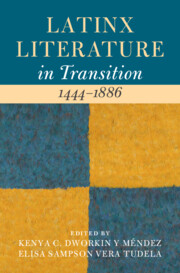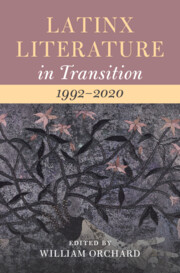Refine search
Actions for selected content:
2 results in Latinx Literature in Transition

Latinx Literature in Transition, 1444–1886
-
- Published online:
- 06 August 2025
- Print publication:
- 17 July 2025

Latinx Literature in Transition, 1992–2020
-
- Published online:
- 19 June 2025
- Print publication:
- 03 July 2025
